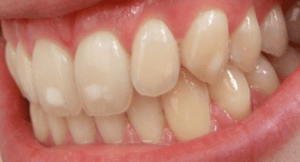 Despite the confident tone of organizations like the ADA and CDC, there’s actually precious little evidence that fluoridation does much to prevent caries – a point reinforced by recent research out of Chile.
Despite the confident tone of organizations like the ADA and CDC, there’s actually precious little evidence that fluoridation does much to prevent caries – a point reinforced by recent research out of Chile.
Chile, note the authors of a paper published earlier this year in the Medical Journal of Chile, “is a pioneer in the fluoridation of drinking water.” The country began fluoridating in 1953, and today, over 80% of the country is covered – more than here in the fluoride-happy USA.
And still their research shows what earlier studies have shown: fluoridation is more likely to harm than help.
The multidisciplinary team of researchers set out with two goals: review the systemic effects of swallowing fluoride and evaluate the impact and basis for fluoridation programs in Chile. They reviewed all available and relevant studies that controlled for confounding factors – qualities that, in the authors’ opinion, made them “irrefutable.”
The effects they noted will be familiar to anyone who’s spent any time reading up on fluoridation science: neurological problems, endocrine issues, and skeletal and skin damage. “Dental and skeletal fluorosis,” they write, “are signs of chronic and excessive ingestion of fluoride.”
And indeed, as we noted a while back, analysis of NHANES data shows that fluorosis rates have skyrocketed even as tooth decay has persisted.
The authors’ in-depth analysis of WHO data bears this out: “Fluoridation of drinking water and salts have no incidence at all in reducing dental deterioration [caries/decay].” Nor does fluoridation have any “direct or remarkable effect on dental health.”
And still, there are those who insist that fluoridation is good preventive dentistry, one of the greatest public health achievements of the 20th century, in the lofty language of the CDC – as if they say it long enough, loud enough, often enough, it will somehow become true.
Not only is fluoridation ineffective; it’s forced medication, with no controlling of the dose. And as the current study notes, its youth who stand the most to lose from this bad policy.
As with any drug – and that’s what fluoride is considered when used in this way – it should be up to the individual to decide if they want it or not. The onus should be on them to opt in, not the rest of us to opt out. If an individual wants fluoride, they can get it through any number of inexpensive consumer products, including most every major brand toothpaste.
The fluoridation of drinking water…forces citizens to involuntarily consume a chemical they do not require. For decades the majority of the Chilean population has been overexposed to this potentially unhealthy element, transgressing constitutional guarantees.
Americans have been, too.
As for actually reducing decay,
The best hygiene and food habits (reducing carbohydrates) are still the most effective [ways].
It’s not rocket science. It’s common sense.
Image by Matthew Ferguson 57, via Wikimedia Commons